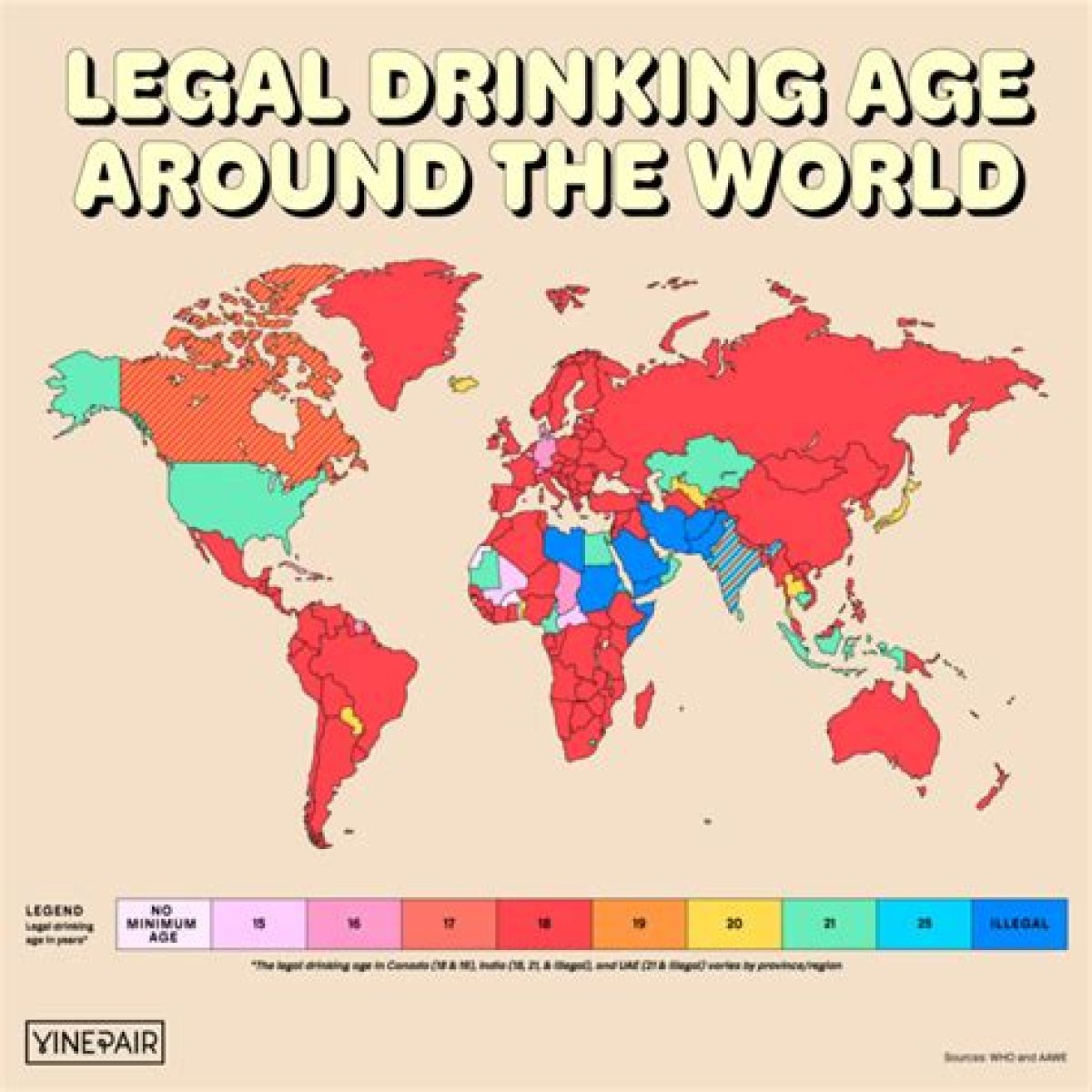The legal drinking age in England is a topic that often sparks debates among young adults, parents, and policymakers alike. With the legal age set at 18 years, many wonder about the implications and reasons behind this regulation. As one of the few aspects of British law that directly affects social customs and youth behavior, understanding the legal drinking age can provide insights into broader cultural attitudes towards alcohol consumption and responsibility.
In this article, we will explore not only the legal drinking age in England but also its historical context, enforcement policies, and the social implications of underage drinking. We will delve into the nuances of how this law is applied across various settings, from pubs to private gatherings, and consider the ongoing discussions about whether the age limit should be altered. Engaging with this topic is essential not just for the youth entering adulthood but also for parents and educators who play a significant role in shaping attitudes toward alcohol.
Ultimately, the legal drinking age in England serves as a framework within which society navigates the complexities of alcohol consumption. As we unpack this topic, we will address common questions, examine statistical data, and provide resources for further understanding. Let’s dive into the world of legal drinking in England and uncover what lies beneath this seemingly straightforward law.
What is the Legal Drinking Age in England?
The legal drinking age in England is 18 years old. This means that individuals must be at least 18 to purchase alcohol in licensed venues, such as pubs and restaurants, or to buy it from shops. However, there are certain exceptions to this rule, particularly when it comes to underage drinking in private settings.
Why Was the Legal Drinking Age Set at 18?
The legal drinking age in England has historical roots that date back to the early 20th century. Initially, the age for consuming alcohol was lower, but various societal changes and health concerns led to an increase in the legal age. Factors influencing this decision included:
- Public health studies highlighting the dangers of alcohol consumption among young people.
- The impact of alcohol on cognitive and physical development.
- International trends and practices regarding alcohol consumption.
How is the Legal Drinking Age Enforced in England?
Enforcement of the legal drinking age in England falls under local authorities and law enforcement agencies. Venues that serve alcohol are required to check identification, ensuring that patrons are of legal age. The consequences of failing to comply with these regulations can include fines, license suspensions, and even legal action against establishments.
What Are the Exceptions to the Legal Drinking Age in England?
While the legal drinking age in England is firmly set at 18, there are some exceptions worth noting:
- Children aged 16 or 17 may drink beer, wine, or cider with a meal when accompanied by an adult.
- In private settings, parents or guardians can permit their children to consume alcohol at home.
Is the Legal Drinking Age in England Too Low?
One of the ongoing debates surrounding the legal drinking age in England is whether it should be raised. Advocates for a higher age limit argue that:
- Increased age restrictions could lead to reduced alcohol-related accidents and health issues among youth.
- It would align England with other countries, such as the United States, where the legal drinking age is 21.
What Are the Consequences of Underage Drinking?
Understanding the implications of underage drinking is crucial for both young people and their guardians. Some of the potential consequences include:
- Legal penalties for both minors and establishments serving alcohol to underage individuals.
- Health risks associated with early alcohol consumption, including addiction and impaired brain development.
- Social repercussions, such as damaged reputations and strained family relationships.
How Do Other Countries Compare to the Legal Drinking Age in England?
When looking at the legal drinking age in England, it is interesting to compare it with other countries. For instance:
- In the United States, the legal drinking age is 21.
- Many European countries have a legal drinking age of 16 or 17 for beer and wine.
This comparison highlights the varying cultural approaches to alcohol consumption and the differing societal norms surrounding drinking.
What Resources Are Available for Understanding Alcohol Consumption?
There are various resources available for those looking to understand more about alcohol consumption and its effects:
- Government websites offer guidelines and statistics about alcohol consumption.
- Non-profit organizations provide information on responsible drinking and support for those struggling with alcohol issues.
In conclusion, the legal drinking age in England is a multifaceted issue that encompasses legal, social, and health-related aspects. Understanding this age limit, its enforcement, and its implications can help guide young adults as they navigate their relationship with alcohol. As society continues to evolve, so too will the discussions surrounding the legal drinking age and the cultural attitudes towards drinking in England.
When Stars Collide: The Fascinating Connection Between Ryan Gosling And Sandra BullockUnraveling The Kim And Kourtney Drama: A Closer Look At Their Turbulent RelationshipEminem's Family: Understanding How Many Kids Does Eminem Have
